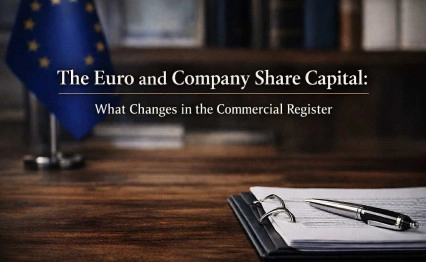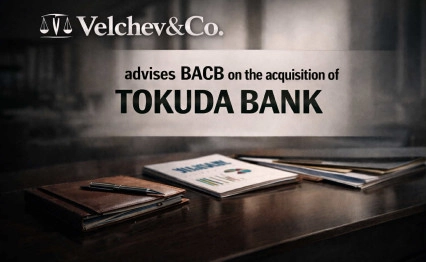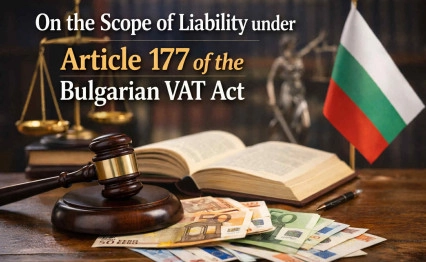
In the light of the amendments to the Public Procurement Act (PPA) – the scope of art. 12, para. 1, item 6 of the law and beyond
Allegedly, every law regulates in its scope certain social relations between people from all walks of life. In a material sense the Public Procurement Act (PPA) is to ensure efficiency in spending budgetary and extra-budgetary funds and the funds related to the performance of indicated activities of public importance.Referred to this, the law devolves upon definite categories of persons the obligation to purchase products and services through a procedure based on a competitive start. Supposedly, the competition obtained in this manner provides both lower prices and higher quality of the purchased products and services, which in turn reduces the buyers’ expenses and subsequently leads to lower prices and higher quality of the products and services offered on the market in relation to the substantial public activities carried out. Admittedly any circumvention of provisions of PPA shall be expected to increase the regular costs of a random buyer. A prerequisite for the latter turns out to be the conclusion of contracts with a related undertaking for the provision of services related to the suppliers selection and contracts for services, under which the contractor may delegate the activity entirely to any third parties. According to art. 12, para. 1, item 6 of the PPA there shall be excluded from the scope of the law some services, supplies and construction contracts between sectoral entities and associated enterprises under certain conditions. Through the above-mentioned provision, it is to be implemented the exception under art. 23, par. 2 of Directive 2004/17/EC of the European Parliament and of the Council of 31 March 2004 coordinating the procurement procedures of entities operating in the water, energy, transport and postal services sectors.
The main objective of the Conception, in the performance of which the law amending and supplementing the PPA is drawn up (Concept for amendments in the legislation on public contracts in 2011, adopted by the Government on 12 January 2011), was to identify measures that shall be able to improve the process of procurement and thus to provide the prerequisites for increased efficiency in the absorption of resources from the European funds.
The reasons
Referred to in recital 32 of the Preamble to the Directive, the reasons for the exclusion from the PPA scope of certain services, supply and construction contracts awarded to an affiliated company, are related to the fact that in certain cases there are activities carried out mainly within a group of related enterprises, as the respective services, supplies or works are not offered on the market. Then the related company does not come as a competitor of any other performers of such activities on the market. Considering the latter, it is no chance that the inductively derived motive is compatible with the practice of the European Court of Justice (case c-26/03 Stadt Halle, C-107/98 Teckal). According to the Court, this manner of award procedure shall be placed on the same footing with an implementation of activities with own resource so to speak. On behalf of the latter, the fixed routine for regarding the award procedure is not applicable. By and large, it is to be assumed that the award of contracts to an affiliated undertaking has no significant impact on the free market in relation to competition.
The purpose of the exception
The exception under art. 23, par. 2 of the Directive aims mostly to respond adequately to the needs of the enterprises of the group. Taking this into account, it shall be seen as a sort of an original corporate outsourcing, where one of the companies in the Group has a duty bound to carry out a certain activity so as to meet the needs of some or all of the same enterprises in the group.
Maximum size to which the exception applies
As a matter of fact there is a restrictive measure provided in art. 23, par. 2 of Directive 2004/17/EC regarding the maximum size limit, within which an affiliated undertaking has the permission to have a turnover on the free market, namely: up to 20% of the average turnover for the preceding three years, formed by the performance of the relevant services, supplies or works.
Beyond the scope of the PPA
The national regulations, concerning the award of contracts by a contracting authority under art. 7, item 5 or 6 of the PPA (so called sectoral employer) to a related undertaking, is in conformity with the European requirements applied.
The calculation of turnover
Apparently, in order the exception to be applied, it is of high importance to be established the supplies, services which should be taken into account so as the required turnover to be determined. Through the interpretation of the legal text, it can be concluded that these are the granted to related undertakings supplies, services, or construction, being identical or similar to the subject matter of the contract, which shall be assigned. For instance, in the event of award of the contract for the supply of machinery or spare parts, serving for the purspose of the sectoral activities of the entity referred to in art. 7, item 5 or 6 of the PPA, 80 per cent of the average annual turnover of the enterprise for the last three years have to be formed by similar supplies to associated enterprises, not in general from any of the supplies it implements.
On one hand, in case the affiliated undertaking has not made a turnover for the preceding three years regarding the date of its initiation or the starting point of its activities, it is enough his business plans to predict at least 80 percent of his average annual turnover to be formed of the supplies, services or works which will provide the associated enterprises (article 12 , para. 2 PPL).
On the other hand, if more than one affiliated undertaking provides the same or similar services, supplies or works, the above-mentioned value is calculated when taking into account the total turnover resulting from the provision of the relevant services, supplies or works to these undertakings referred(art. 12, para. 3 of the PPL).
Changes in the definitions of certain concepts
A related undertaking
There are a few (but) significant changes made in the Additional provisions of the PPA. The formation of the definition of "related persons" (new item 23), serving for the purposes of the law, aims to overcome the difficulties which entities encounter when applying the legal definition for such persons, regulated in the Law on prevention and the establishment of a conflict of interest. The obstacles in front of the law enforcement are caused by the fact that there are placed difficult to determine and establish relationships in the definition, such as "economic or political dependence" and it also does not cover all possible groups of individuals regarding the contracting entity, who could be associated with the participants. The indicated amendment provides transparency in respect of hypotheses, where there is no connectivity between the employer, resp. the employees of a senior position in his company, and participant in the procedure, as the indicated cases of connectivity concern a Commission member and a participant in the procedure as well. According to § 1, item 24 of the supplementary provisions of PPL an “affiliated undertaking” shall be any undertaking:
(a) the annual accounts of which are consolidated with those of a contracting authority; or
(b) over which a contracting authority may exercise, directly or indirectly, a dominant influence; or
(c) which may exercise a dominant influence over any contracting authority covered under Item 5 or 6 of Article 7
herein, or
(d) in common with any contracting authority covered under Article 7 herein, is subject to the dominant influence
Those requirements are alternative, i.e., it is enough one of them to be in evidence, so as to be established connectivity.
Along with this there is an amendment made in one of the conditions pointed out in the definition of a “body governed by public law” (it. 21 of the SP of the PPL), by the virtue of which it is achieved full compliance with the analogic concept, founded in art. 1, it. 9, t. 2 (c) of Directive 2004/18/EC.
According to the legal definition of the term "dominant influence" contained in § 1, item 22 of SP of PPL, a “dominant influence” shall be presumed when any contracting authorities covered under Item 1 of Article 7 herein, or any bodies governed by public law or any other persons: (a) own more than 50 per cent of the capital of the undertaking, or (b) hold blocking minority rights to the capital of the undertaking, or (c) can appoint more than half of the members of the management or supervisory bodies of the undertaking. e this influence occurs when entities under art. 7, paragraph 1 or public organizations:
-
- hold over 50 percent of the capital of the undertaking, or
- possess a blocking quota in the capital of the undertaking, or
- can appoint more than half of the members of the management or supervisory bodies of the company.
Share


